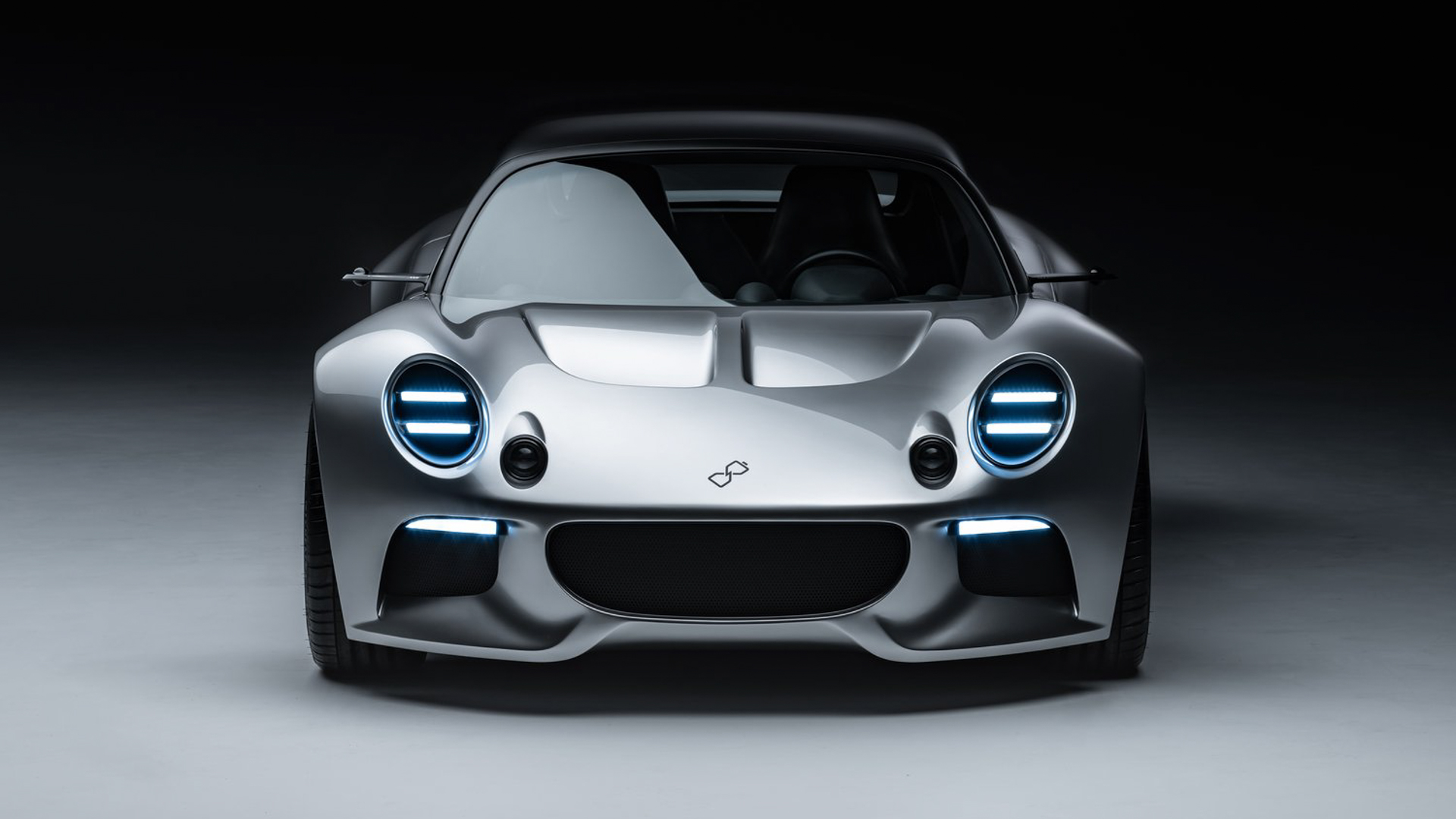

Modifying an old Lotus into an electric sports car isn’t a new concept—that’s how Tesla started. Of course, electric vehicles are no longer novel, so the idea of another startup following the Tesla Roadster’s example might not seem worthy of your time. This one just might be, though. British engineering firm Nyobolt created one to demonstrate its rapid-charging battery tech, and it shows promise for lightweight, fun-to-drive EVs.
If the Nyobolt EV looks familiar, that’s because you’ve probably seen it a thousand times before. The coupe started life as a Lotus Exige. To transform it into what we see here, the firm hired Julian Thompson—the Series 1 Elise’s original designer—to tweak its bodywork for EV duty. It’s a little bit longer and certainly more modern looking, but it’s still obviously an Elise.




More interesting than its bodywork is its battery, though. According to Nyobolt, the firm’s high-density battery technology allows for its 35-kWh battery pack to charge at 350 kW, while being light enough to give the sports car a 2,746-pound curb weight. Of course, that’s a good sight from the Series 3 Elise’s roughly 2,000 pounds, but for an EV? Not too shabby at all.
Electric car aficionados will know that 350-kW charging isn’t new nor groundbreaking. However, maintaining that speed through almost the entirety of a charge cycle is impressive, and Nyobolt claims that its battery management software allows the coupe to go from 10-80% state-of-charge in just 4 minutes and 37 seconds.
Of course, we’re talking about a small battery here, at just 35 kW. But if it can deliver 24.5 kWh in under five minutes, that would mean it maintains its 350-kW charging speed through almost all of its charge cycle. This technology could be immensely helpful for compact, economical EVs and agile sports cars. More importantly, Nyobolt’s proven that the technology is durable and reliable, and the company has reportedly given its prototype 4,000 full-charge cycles—the equivalent of 600,000 miles—with the battery retaining over 80% of its usable capacity.




“OK, but what’s the range?” you may ask. Auto Express quoted a 155-mile estimation from Nyobolt. The publication seems to be rather disappointed at that projection, but when the 2024 Mini Cooper SE tops out at 114 miles—and tips the scales about 400 pounds heavier than this concept—we reckon Nyobolt’s made decent progress here. (The upcoming SE practically doubles range, but also lugs around roughly double the battery.)
“We can enable OEMs to build excitement back into the segment, which is literally weighed down by legacy battery currently,” Shane Davies, Nyobolt’s director of vehicle battery systems, told Autocar. “Our Nyobolt EV demonstrates the efficiency gains facilitated by our fast-charging, longer-life battery technology, enabling capacity to be right-sized while still delivering the required performance.”
Nyobolt isn’t naming names, but it’s said to be speaking with eight different car manufacturers about its battery tech. It also worked with Callum, the U.K. design firm founded by longtime Jaguar designer Ian Callum, to bring this prototype EV into low-volume production. Hopefully Nyobolt actually builds and sells a few of these Elise-based coupes, so manufacturers can see that lightweight, all-electric sports cars are not only now possible, but worthwhile.
Got tips? Send ’em to tips@thedrive.com